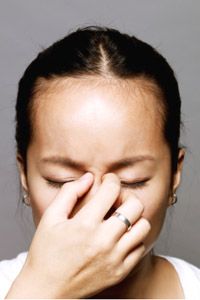An allergy to gluten can cause serious reactions, which include inflammation of the digestive tract and the nervous system. The symptoms of a gluten allergy can range from mild to severe, and even to life-threatening. As a reaction to what it perceives as "invaders" (gluten in the case of a person with a gluten allergy), the body produces excess amounts of antibodies to fight the invasion. At the same time as the antibodies attack the gluten protein, they also attack the body's own tissue made up of similar protein codes.
In reaction to this process the body manifests a number of symptoms that may include sinus problems, weight loss or weight gain, chronic and itchy rashes, fatigue, anemia, diarrhea or constipation. While some medications may help alleviate some of the symptoms the only way to really treat and manage an allergy to gluten is by eliminating the consumption of all gluten from your diet.
Advertisement
Gluten is one of the proteins found in grains, such as wheat, barley, rye and oats. Products that contain any of these grains will therefore also contain gluten, and should be avoided. There is a lot of information about what products contain gluten on the Internet. Some of the popular products include any baked goods, such as cakes and biscuits, and all pastas. Some brans and cereals may also contain gluten due to contamination from equipment during its production. The ingredients on all food packaging must be checked for gluten, including marinades, processed meats, soy-based meat substitutes, and all condiments. In addition, alcoholic beverages such as beer, ales, stout, Guinness and lager are made from grains and contain gluten.
While the gluten-containing list of products is particularly extensive, gluten-free substitutes are becoming increasingly available. People with gluten allergies can still enjoy a varied diet, by learning what products don't contain gluten. Some of these include rice, corn, potato, quinoa, buckwheat, tapioca, beans, yogurts, fruits, eggs, sugar, and nut flours. There is even gluten-free beer available in Australia.
Advertisement

